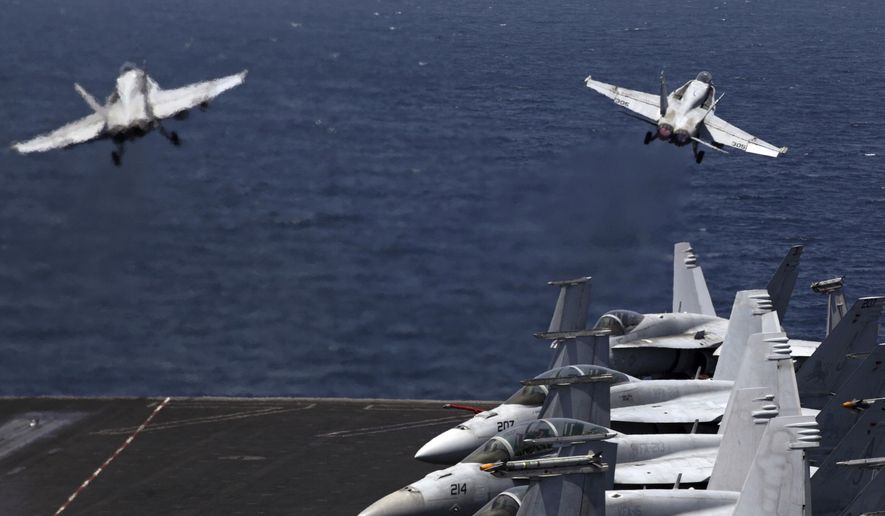The Pentagon acknowledged Monday that its limited airstrikes in northern Iraq have done nothing to slow the overall operational goals of the al Qaeda spinoff group, the Islamic State.
Army Lt. Gen. William Mayville, the Pentagon’s joint operations chief, said 15 air strikes by F-15E, F-16 and drones had slowed the Islamic State’s advance toward Irbil in Kurdish territory, and that’s about it when it comes to battlefield effectiveness.
“So I in no way want to suggest that we have effectively contained or that we are somehow breaking the momentum of the threat posed by [the Islamic State],” Gen. Mayville said.
“These strikes are unlikely to affect ISIL’s overall capabilities or its operations in other areas of Iraq and Syria,” he said. “ISIL remains focused on securing and gaining additional territory throughout Iraq, and will sustain its attacks against Iraqi and Kurdish security forces and their positions as well as target Yazidis, Christians and other minorities.”
He added: “I think in the immediate areas where we have focused our strikes, we’ve had a very temporary effect.”
It was a matter-of-fact statement that the Obama administration at this point has no plans to launch a more comprehensive air campaign across Iraq to hit Islamic State targets and help the Iraqi Security Forces regain swaths of lost territory.
“Our current operations are limited in scope to protect U.S. citizens and facilities,” the general said.
When asked if targets might be expanded to include Islamic State leader Abu Bakr al Baghdadi, Gen. Mayville said: “There are no plans to expand the current air campaign beyond the current self-defense activities.”
In Iraq, the Sunni extremist Islamic State has about 7,000 fighters, who since June have gone on a rampage of mass killings as they conquered key cities of Mosul in the north and Fallujah in the west, and now threaten Baghdad.
Sen. John McCain, Arizona Republican, said Sunday that the Obama administration has no strategy for damaging or defeating the Islamic State, even though U.S. officials call it a threat to the United States.
Gen. Mayville said, “What I expect the [Islamic State] to do is to look for other things to do, to pick up and move elsewhere.”
“Yeah, I’m very concerned about the threat posed by ISIL in Iraq and in the region,” the general said. “They’re very well-organized. They — very well-equipped. They coordinate their operations, and they have thus far shown the ability to attack on multiple axis. This is not insignificant.”
• Rowan Scarborough can be reached at rscarborough@washingtontimes.com.




Please read our comment policy before commenting.